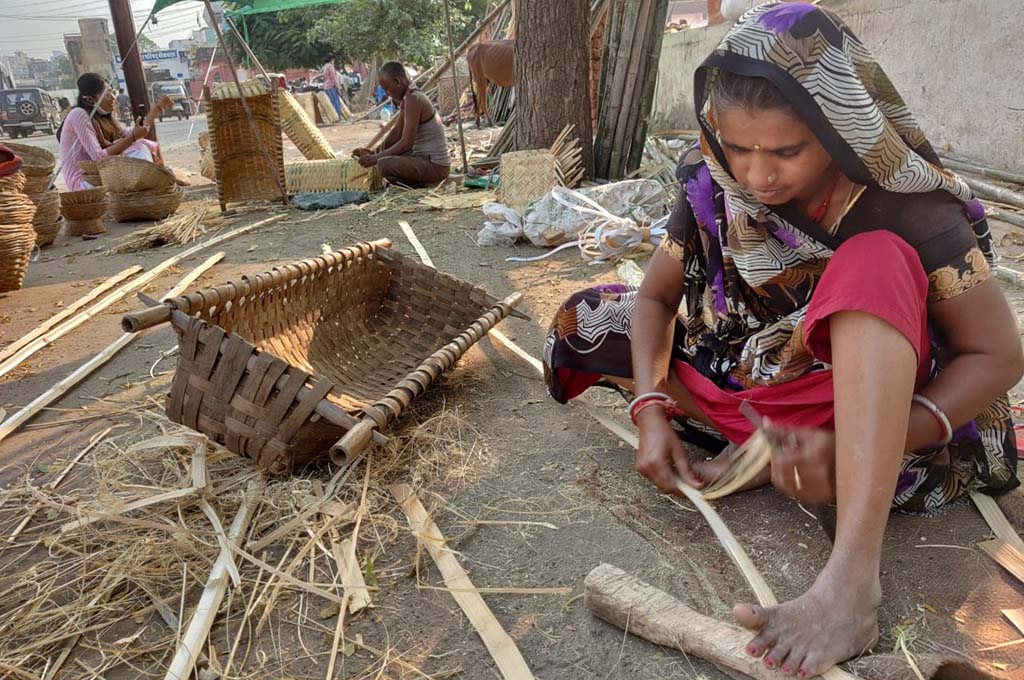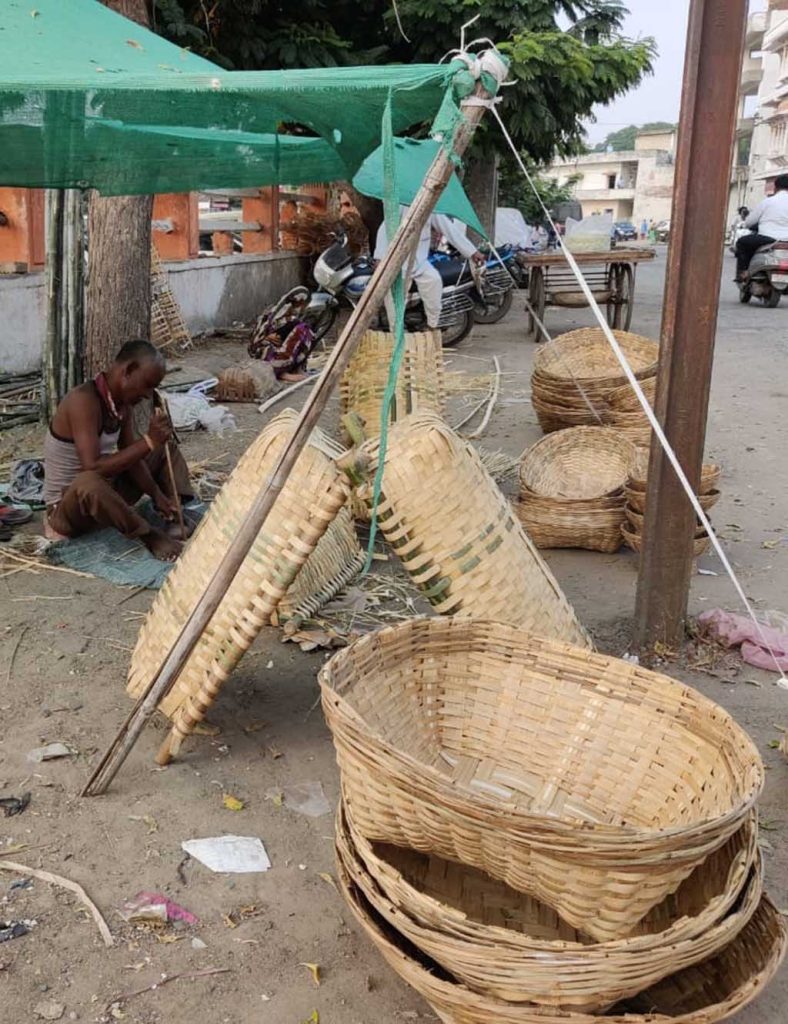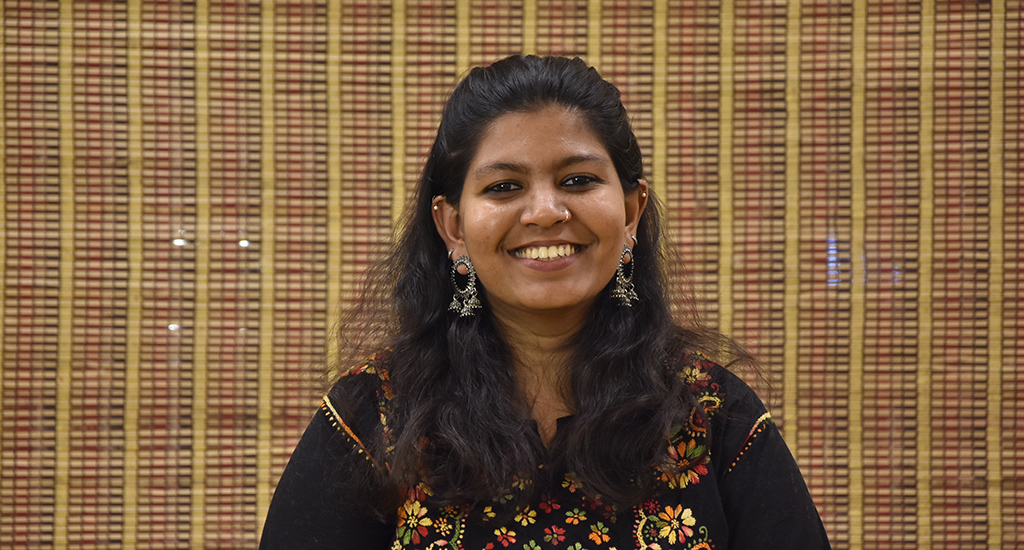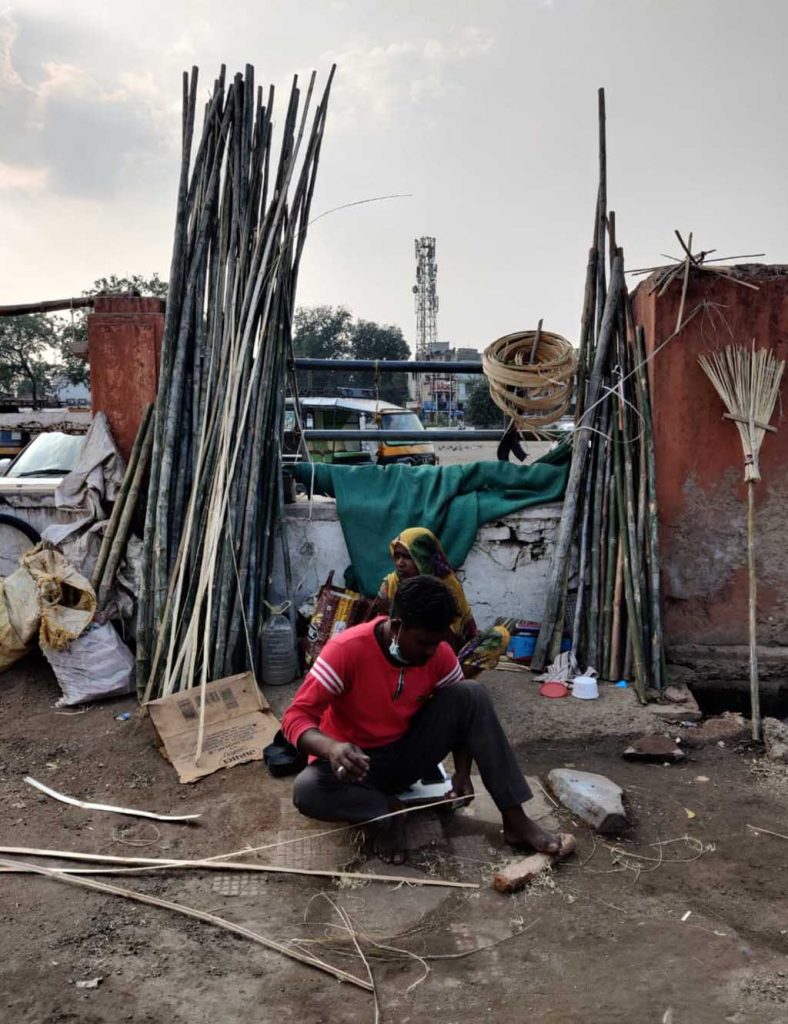
The vanishing art of weaving bamboo baskets
A couple struggling to earn money by weaving bamboo baskets – their traditional livelihood – makes a development management student wonder if it’s wrong to expect some support from the government.

A couple struggling to earn money by weaving bamboo baskets – their traditional livelihood – makes a development management student wonder if it’s wrong to expect some support from the government.
A couple is seen weaving bamboo baskets with the bare minimum resources and no shed to give them protection from the October heat. You might think this is a scene from a period film or a story from decades ago. Sadly not. This is Kesari’s reality in a remote village in the Banswara district.
Kesari has been weaving bamboo baskets as long as she can remember. She started weaving when she was with her parents and now continues with her husband.
Kesari belongs to the Bansphor community. The name ‘Bansphor’ has been derived from the word ‘bamboo,’ as the community traditionally makes bamboo products.
For the past 30 years, Kesari has been coming to the same place to weave baskets and sell them.

As is the case in the handicraft business, income is not stable. While she earns Rs 2,000 on certain days, sometimes products go unsold for days at a time.
With the money they earn weaving bamboo baskets, Kesari and her husband are educating their son, hoping he will have a better future.
The name Banswara owes its origin to the ‘bans’ – or the bamboo forests – of this region. And bamboo products abounded here.
However, the region is losing its traditional craft and its importance in modern times.
Kesari said that the land was once known for its bamboo and supported people who made products out of it.
When we try to keep our products in the marketplace, people shoo us away. Only the bigger stores get some space to set up their stalls.
“Our livelihood depended on bamboo. But now we can hardly make a living,” she said.
Kesari and her husband don’t have larger-than-life expectations. They just want to work in peace.
“When we try to keep our products in the marketplace, people shoo us away. Only the bigger stores get some space to set up their stalls. The government doesn’t do anything for us,” she said.
Their only hope is that they should be allotted a permanent spot to sell their wares. Then they don’t have to move around and offer bribes to secure a spot.
Not having a spot to sell their baskets is something they can accept. But the least they expect is to peacefully work on the streets and attempt to make a living.
There used to be a haat (market) system earlier, but it has given way to new trends and demands.

Kesari feels that the government should acknowledge their existence in society and introduce schemes that benefit them. While they receive subsidies to buy bamboo, it is insufficient as it is given only once in three years. (ALSO READ: Lacking access to bamboo, Basor artisans struggle for livelihood)
Their meagre income is barely enough to keep their household going. But when unforeseen events – like medical treatments – come along it is even harder.
“How does the government think that we can spend three years on this? When we don’t get treated in government hospitals, we have to go to private ones. The expenses keep rising but we have no alternatives,” Kesari said.
They want recognition for their work as their tribal art is dying without government support.
To make things worse, the younger generation do not want to continue the craft.

Kesari enjoys the work and is satisfied with what she does despite the hardship.
But she also adds, “What’s wrong with wanting some comforts? I want my children to have a better life than me. If I want some help from the government for this, what is wrong with that?”
This conversation with Kesari left me thinking: Is it wrong to expect a better standard of living? And to expect help from the government that is made for the people, by the people?
The photo at the top of this page is that of Shubhalaxmi Dalvi, this article’s author and a development management student at Indian School of Development Management. (Photo courtesy Shubhalaxmi Dalvi)